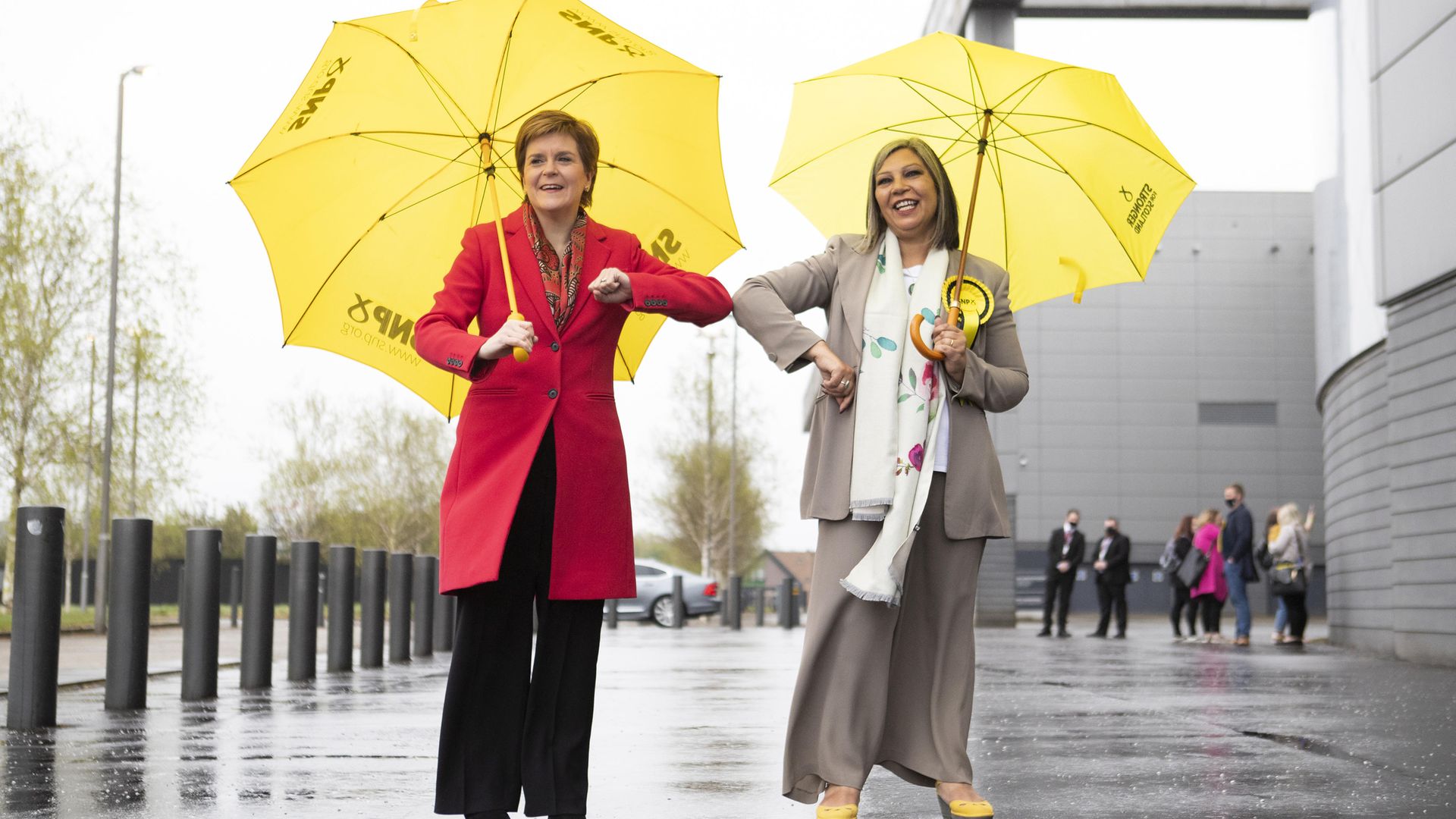
The SNP has won an emphatic victory in the Holyrood elections, but did not gain an overall majority.
Nicola Sturgeon’s party took 64 seats – 62 in constituencies and one on the Highlands and Islands and another in the South Scotland regional list – one shy of a majority but well ahead of the Tories on 31 seats.
With the failure to return 65 MSPs, the case for another independence referendum is weakened, but the Scottish Greens provide an overall pro-independence majority of 72 seats.
In a televised victory speech, Sturgeon said another vote was “the will of the country”, adding: “It is a commitment made to the people by a majority of the MSPs have been elected to our national parliament.
“It is the will of the country.
“Given that outcome, there is simply no democratic justification whatsoever for Boris Johnson or anyone else seeking to block the right of the people of Scotland to choose our future.”
If the request is rejected, Sturgeon said, “it will demonstrate conclusively that the UK is not a partnership of equals and that – astonishingly – Westminster no longer sees the UK as a voluntary union of nations”.
She added: “That in itself would be a very powerful argument for independence.”
The SNP also boasted a historic return in Glasgow Kelvin, after Kaukab Stewart became the first woman of colour to be elected to Holyrood in its 22 year history.
The first minister said she was “thrilled” with Stewart’s win, and Scottish Labour leader Anas Sarwar also congratulated her on claiming the seat vacated by the retiring Sandra White.
Despite the SNP win, the first minister will now need to address gaps in her cabinet, after four sitting cabinet ministers stood down, including health secretary Jeane Freeman and constitution secretary Mike Russell.
In the coming weeks, Sturgeon will have to look to current junior ministers and possibly members of the new intake in the SNP to be brought into her ministerial team.
Warning: Illegal string offset 'link_id' in /mnt/storage/stage/www/wp-includes/bookmark.php on line 357
Notice: Trying to get property 'link_id' of non-object in /mnt/storage/stage/www/wp-includes/bookmark.php on line 37






